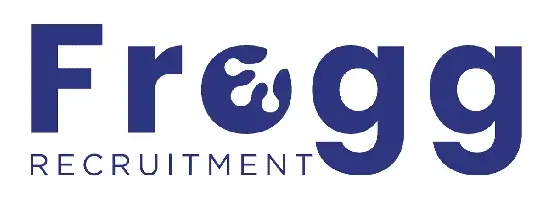RECRUITMENT PROCESS:
STRONG EMPLOYER BRANDING WILL IMPROVE YOUR CANDIDATE EXPERIENCE.

A successful employer brand is a sophisticated system made up of many different components, such as candidate experience, staff engagement, and business culture (mission, vision, and core values), to mention a few. You present a rich tale about your company and its distinctive position in the market to both employees and potential applicants.
Your employer brand is your company’s perceived reputation as a suitable place to work, a desired place of choice, or your corporate identity as filtered via jobseeker interview experience. You need to think like a jobseeker, what are jobseekers looking for when looking for a job or accepting job offers.
Employer branding is the proactive management of your employer brand for the purpose of marketing your business to targeted job seekers. This can be achieved by emphasizing and exhibiting your organization’s distinctive cultural differentiators to promote your business as an attractive place to work.
Determining the core values and distinctive characteristics of your organization and matching them to the job seekers you want to recruit are the keys to creating an employer brand that resonates with the company. It conveys that your company is a respectable employer, which supports recruitment /hiring initiatives, employee engagement, and retention.
If done well, employer branding will generate talk about your business, draw in motivated job candidates, and create a workforce full of contented workers. These employees frequently share their positive experiences with other stakeholders, such as job prospects, recruitment, clients, and customers, expanding the reach and influence of your employer brand.
The better you are at employer branding, the more likely you are to retain and attract your top talent, as 69% of surveyed employees think it is extremely/particularly important that their employer has a brand they are proud to support. Talent Acquisition needs to stand out to attract top jobseekers to apply to your jobs.
Let us say you have done a phenomenal job building up a strong brand with your products or services. Unfortunately, that alone will not convince someone to work at, or stay at, your company. You need to implement the same branding strategy when communicating your company’s leadership, values, and culture.
The recognition among business executives that the success of their organizations depends on the calibre of their talent pipeline and talent management is what caused the change toward emphasizing good employer branding. By cultivating a positive employer brand, companies are not only able to attract qualified candidates for immediate job openings but also build long-term relationships with potential hires who may be suitable for future roles within the organization.
Well-known brands also struggle to attract and recruit potential employees due to a lack of an employer brand. Companies need to establish captivating employer branding that serves as a guiding North Star, enabling them both to attract and retain the right employees to overcome this challenge. Additionally, companies must navigate the evolving expectations and values of their employees regarding career priorities, work-life balance, and flexible working arrangements.
Spending money on employer branding is a proactive move that will help the firm create a long-lasting talent pipeline and ensure its success in the future. Employer branding is a priority for businesses today, and those who do so are establishing the basis for crucial positions to be filled in the next one to three years. Organizations may build a solid reputation, entice top people, and promote a motivated and engaged workforce by developing a compelling employer brand.
This shift towards investing in employer branding has been fuelled by the need to recruit and keep top talent as well as the changing expectations of employees. Creating a clearly defined and authentic employer brand is essential for organizations to successfully navigate the challenges of talent acquisition and management. As companies strive to strike a delicate balance between employee-friendly practices and business objectives, the significance of Employer Branding in shaping organizational success becomes increasingly evident.
Align your strategy with the needs of the organization.
Your organization’s short and long-term demands, as well as all the goals it intends to achieve and the skill set it will need to do so, will define an effective strategy. Fortunately, it’s simple to match your employer’s branding approach with organizational requirements. Start by answering a few basic questions such as “What objectives will the business pursue over the next 12 to 36 months?” “What new products and services are in the pipeline?”
Allocate resources upfront.
Roles and responsibilities should be clearly defined upfront to reduce obstacles later in the process and help guarantee deadlines are fulfilled. One of the greatest decisions you’ll have to make when allocating funds to create an employer branding plan is whether to work internally or hire an outside consultant. Both choices offer benefits:
External organizations. Several employer branding agencies have popped up in recent years, however, they are not as prevalent as their counterparts in advertising. If an organization lacks internal knowledge or needs to enhance its current resources, these service providers can be the best choice.
Internal teams. For many businesses, setting up an internal employer branding team will be the most cost-effective option. Although this choice might not entail specific consultants or companies, it can be as effective if properly implemented.
Make sure you comprehend the application process from the perspective of the applicant because it represents your employer brand in many ways. Ask prospective employees and recent hires how it was to apply for a job at your company. To identify areas for development, your team will benefit from having an outsider’s perspective on the procedure. Here are some queries to think about:
What led them to you? They applied where and when. What is the importance of having a Strong Employer Branding will improve your candidate experience.
How did they find out about the business? What materials would have been useful? Insight into the company culture, a recruitment firm, a networking event, an updated careers page, etc.
A candidate persona was created to help recruiters better understand the candidates they are chasing. It is a semi-fictional representation of your ideal candidate. It offers a perception of the driving forces behind job seekers’ decisions to seek out, accept, or reject a new position.
To get the data, you need for candidate personas, you’ll need to conduct some interviews with potential hires. A good starting point is ten, but the more the merrier. Include recent hires in your interview schedule because they can offer insightful advice as well.
Organizing your interview template into portions can help you gather as much information as you can. Here are some factors to consider:
The basics: job title, required compensation, and eligibility requirements.
The background: schooling, employment history, and particular skill sets
Personal objectives, driving forces, and interests of the person.
When focusing on applicants, demographics are crucial to consider. To avoid unintentionally excluding communities and perpetuating unconscious biases, do not make your aim too specific. In addition to being unethical, it is also unlawful.
You must determine where your prospective prospects spend their time to reach them with your message because not every channel is appropriate for every business.
Recruiters should still be familiar with the foundations of owned, earned, and sponsored media before talking with candidates, but this is one area where you’ll absolutely want to involve your marketing team.
Owned channels, such as your social media profiles or careers page, will probably serve as your main resource but don’t be hesitant to delve into the worlds of bought and earned media. Investing in quality content can enhance the likelihood that users will share it with their personal networks as well as guaranteeing that people see your messaging by paying to run display ads on industry websites or putting job postings on employment boards.
An employer value proposition (EVP) gives employees a compelling reason to work for you by encapsulating your organization’s mission, beliefs, and culture. It outlines the benefits that your business provides to employees in exchange for their knowledge, expertise, abilities, and contacts.
An employee value proposition is the unique value you provide as an employer to your staff in return for their expertise, dedication, and loyalty to the company. Along with salary, career advancement, work-life balance, and your values, mission, and social purpose. This also includes corporate culture.
The purpose of your employee value proposition is to identify and communicate all the distinctive advantages and experiences that employees might anticipate from choosing to work for your company. Additionally, it explains why your business is the ideal environment for the employees who thrive there and aids in attracting the proper candidates who are compatible with your exclusive offer.
Employer branding is a strategy for putting your company on the map in the eyes of employees. Your company will develop a reputation as a friendly employer if you appreciate the applicant experience, the onboarding procedures, and the best employee experience at work.
Building an employer brand needs to do with caution while there are many human and financial rewards to this strategy. Execution and consistency are as important as intent. This should be accomplished in collaboration with HR professionals, and the right recruitment marketing teams and should reflect a willingness to support job satisfaction and the best employee experience.
In conclusion, A successful employer brand begins with building a great employee experience.
